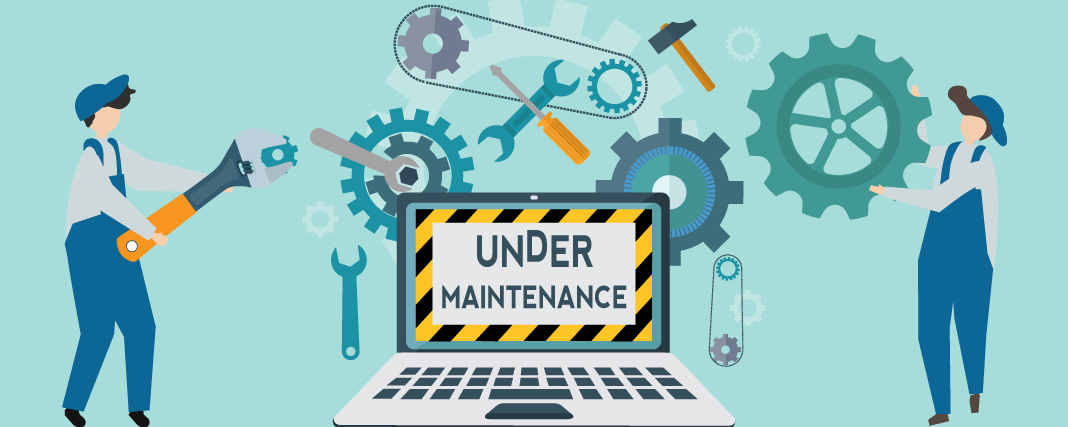5 Key Maintenance Manager Skills Needed in 2023
Jeff O’Brien, Co-founder, Zoidii
Posted 04/27/2023
Today, maintenance managers find themselves in an ever-evolving environment where technology advances rapidly, and expectations for efficiency and competency continually rise. Maintenance managers will need to possess a wide array of essential skills to stay competitive and ensure the smooth operation of their facilities. In this article, we’ll dive into the five crucial skills maintenance managers must have in 2023 to excel in their role.

The Benefits of Having Highly Skilled Maintenance Managers
Before we explore these critical skills, it’s essential to understand the benefits of having a top-notch maintenance manager on your team. These experienced individuals can be invaluable to any organization. They are responsible for managing and leading a group of individuals that maintain the efficiency, safety, and longevity of a facility’s equipment and infrastructure. A skilled maintenance manager on board leads to increased equipment lifespan, reduced downtime, improved safety standards, and substantial cost savings. Investing in their development and ensuring they possess the right skill set will boost their performance and enhance your organization’s overall success.
Understanding the Core Competencies of a Maintenance Manager
A proficient maintenance manager should possess well-rounded skills and competencies to carry out their duties successfully. Core competencies for a maintenance manager typically include problem-solving skills, communication, time management, coaching and mentoring, and decisiveness. In the following sections, we will take a more detailed look at these essential skills and their implications for a maintenance manager’s success.
1. Problem-solving Skills
Colin Powel said, “Leadership is about solving problems.” A maintenance manager’s role often involves identifying and resolving issues that impact the team or the facility’s operations. Being a great problem solver requires thinking critically, analyzing situations, and finding practical solutions to problems that may arise. Effective problem solvers think quickly and act calmly.
This skill set also extends to developing and implementing preventive measures to identify and address potential future problems before they escalate. For example, implementing CMMS software at the facility so you have all the asset history and maintenance-related information you need to better solve technical issues in the future.
To improve your problem-solving skills:
- Seek out problem-solving opportunities.
- Look for problems that need resolving at work or in your personal life.
- Start doing problem-solving games like Sudoku or crosswords.
- Use a problem-solving technique like the five whys to get to the root of problems.
2. Communication & Interpersonal Skills
Poor communication can lead to confusion, misinterpretation, and adverse outcomes. Effective communication is a must-have skill for maintenance managers. As the link between upper management, employees, vendors, and other stakeholders, they must clearly and concisely convey information, instructions, and expectations. Good communication skills also enable managers to motivate their team members, promote a positive work environment, and encourage professional development within their ranks, leading to increased efficiency and overall success.
Great communicators are also great listeners. Maintenance managers that listen to their team and value their input will create a culture of respect, trust, and transparency.
Improving communication skills can benefit both your personal and professional life. Here are several tips to help you enhance your communication skills:
- Active listening is essential for effective communication. Make eye contact, show interest in the other person’s words, and ask clarifying questions to show engagement.
- Speak clearly and concisely to ensure your message is understood. Complex language or jargon may confuse the other person.
- Use nonverbal communication, such as body language and facial expressions, to convey as much information as words.
- Put yourself in their shoes. It will help you appreciate their viewpoint.
- Be open-minded and willing to consider different opinions. Avoid dismissing or disregarding the opinions of others.
- Practice active engagement: Engage in active communication by asking questions, providing feedback, and showing interest in what the other person says.
- Ask for feedback from others on your communication skills. Take their feedback into account and use it to enhance your communication skills.
3. Time Management
With numerous tasks, deadlines, and possible emergencies to juggle, maintenance managers need to have strong time management skills. For instance, a maintenance manager may need to prioritize the repair of a critical piece of equipment over routine maintenance tasks to ensure that production can continue uninterrupted. They may also need to delegate tasks to their team members based on their skill sets and availability to ensure that all tasks are completed on time and to the required standard. Proper prioritization of tasks and the ability to delegate responsibilities when appropriate is essential to meet objectives and maintain a high level of productivity within the organization.
Improving time management skills is essential for achieving personal and professional goals. Here are some tips to advance your time management skills:
- Set clear goals: Understanding your goals and priorities is essential to manage your time effectively.
- Prioritize the most important tasks and allocate the appropriate time and resources to complete them.
- Use a planner or calendar to track your tasks and appointments. Set reminders for deadlines and appointments to help you stay organized.
- Create a schedule: Creating a schedule for your day or week and sticking to it as much as possible will help you stay focused and on track.
- Avoid procrastination: Procrastination can be a significant obstacle to effective time management. Identify the tasks you procrastinate on and find ways to motivate yourself to tackle them.
- Learn to say no: Learning to say no to requests that do not align with your goals or priorities is crucial for effective time management. Be firm but polite in declining requests that will take up too much of your time.
- Take regular breaks to help you stay focused and productive and to prevent burnout.
4. Coaching & Mentoring
The role of a maintenance manager involves ensuring the efficiency and reliability of equipment but also the growth and development of the team. Another critical skill for maintenance managers is the ability to coach and mentor their team members. Successful managers nurture their employees’ skills, knowledge, and career aspirations, and they recognize that their team’s performance directly impacts the facility’s overall success.
Coaching and mentoring involve providing ongoing guidance, constructive feedback, and support to the team to foster a culture of continuous learning and improvement. Providing team members with additional training and resources to develop their skills will ultimately benefit the facility as a whole. In addition, coaching helps build confidence, improve morale, and reduce employee turnover.
Here are some tips to improve your coaching and mentoring skills:
- Trust is essential in a coaching/mentoring relationship. Build trust by establishing rapport, demonstrating empathy, and maintaining confidentiality.
- Active listening is critical in coaching/mentoring. Listen attentively to understand the other person’s needs and concerns.
- Provide constructive feedback to help the other person grow and develop. Focus on their strengths, and provide guidance on areas where they can improve.
- Foster accountability by setting expectations and holding others accountable for their actions. Encourage them to take ownership of their progress.
- Everyone learns differently, so tailor your coaching/mentoring approach to the individual’s learning style and needs.
5. Decisiveness
Lastly, decisiveness is a vital skill for maintenance managers. Given the fast-paced environment and the need to often make quick decisions, assessing information and making informed choices is crucial for the well-being of the facility and its operation. A decisive maintenance manager will analyze situations quickly, consider potential risks and benefits, and confidently make decisions that keep the organization on track for success. This requires sound judgment and the ability to respond to unforeseen circumstances with poise and a clear sense of direction.
For instance, a maintenance manager may need to make a quick decision to shut down a malfunctioning piece of equipment to prevent further damage or to ensure the safety of employees. They will need to consider the potential impact on production and weigh the risks and benefits of the decision before taking action.
Here are some tips to become more decisive:
- Gather as much useful information as possible before making an informed decision.
- Identifying your priorities and considering how they align with the decision you need to make will help you make decisions consistent with your values and goals.
- Setting a deadline for making a decision will help you avoid procrastination and keep you focused on the task.
- Considering each option’s potential implications will help you weigh up the options and make a decision that minimizes risk and maximizes benefits.
- Trust your instincts and intuition. Sometimes, your gut feeling can provide valuable insights that your analytical mind may have missed.
- Once you have made a decision, take action. Avoid second-guessing yourself and commit to your decision.
- Whether the decision turns out to be successful or not, learn from the experience. Reflect on what worked well and what you could have done differently to improve your decision-making skills.
In conclusion, as the maintenance industry continues to evolve, the desired skillset for maintenance managers will constantly be adapting. For current and future maintenance managers, developing these five essential skills – problem-solving, communication, time management, coaching and mentoring, and decisiveness – is imperative to keep up with the demands of 2023 and beyond.
Jeff O’Brien is co-founder of Zoidii—the maintenance solution that gives you real-time visibility of maintenance cycles, labor assignments, parts allocations, and maintenance costs. Jeff has managed over 600 CMMS implementation projects and written over 200 industry articles on leadership, manufacturing, maintenance, and operational excellence.

Jeff O'Brien
Jeff O’Brien is co-founder of Zoidii—the maintenance solution that gives you real-time visibility of maintenance cycles, labor assignments, parts allocations, and maintenance costs. Jeff has managed over 600 CMMS implementation projects and written over 200 industry articles on leadership, manufacturing, maintenance, and operational excellence.
Related Articles

Mentoring
The Missing Link Between OEE and TPM

New Challenges in Maintenance Management




